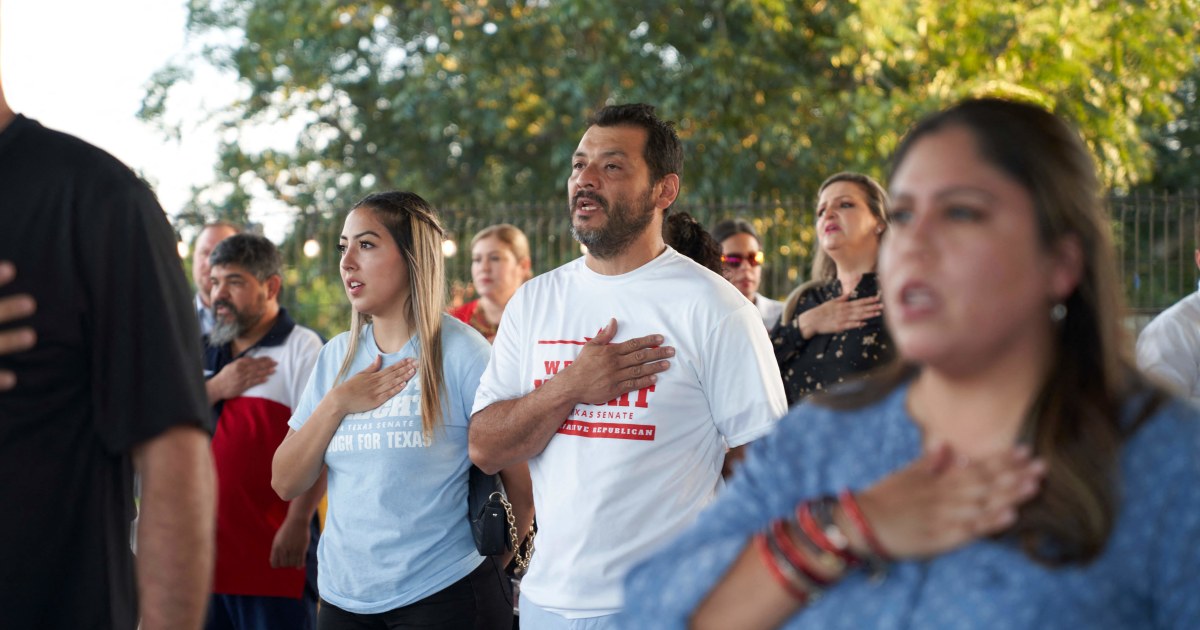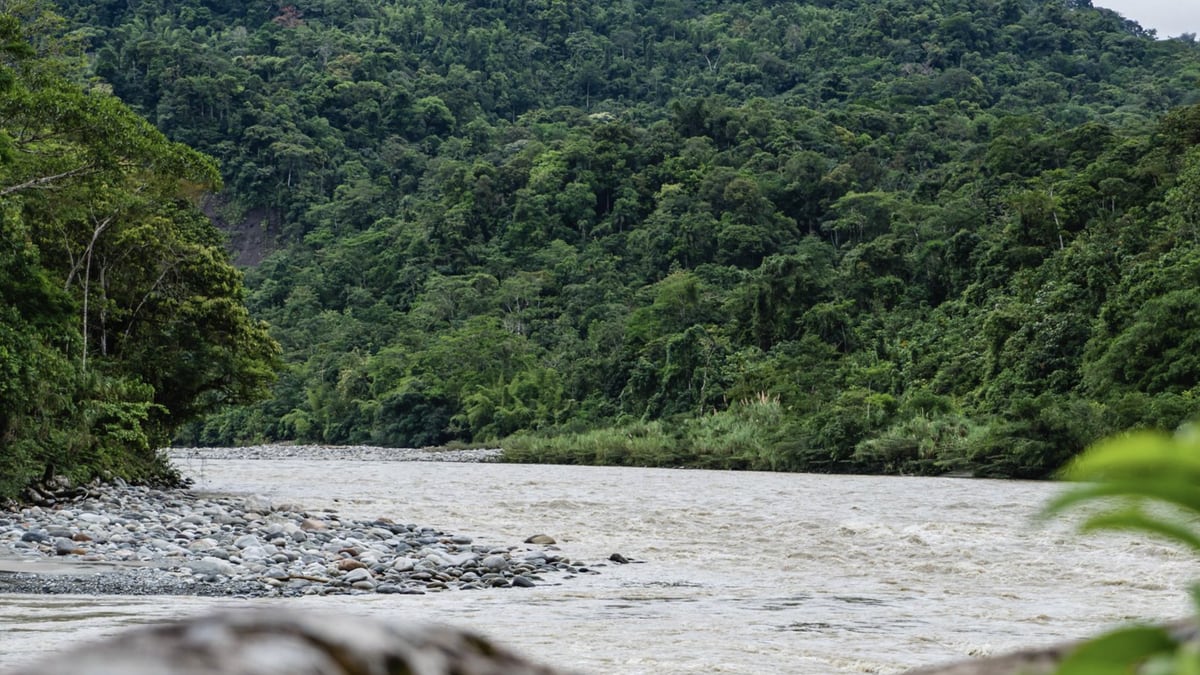Three events that have nothing to do with each other mark the end of the year and the beginning of 2023 in Latin America.
All three refer to the recent past, but at the same time they are framed in different times and the region, after a period of changes, is facing a transition phase.
First of all, Luiz Inácio Lula da Silva takes office this Sunday as president of Brazil after defeating the far-right Jair Bolsonaro at the polls.
He governed for eight years, was imprisoned for corruption and now the leader of the Workers' Party returns to power at the head of a broad coalition with the challenge of rebuilding a country injured by the outgoing president and with the ambition of leaving his true mark politics.
Second, in Venezuela, the epicenter of Latin America's convulsions in the last decade, the opposition has just put an end to the so-called "interim presidency" of Juan Guaidó in search of a new strategy to confront Nicolás Maduro.
In addition to the serious internal tensions, the decision comes in the midst of a negotiation with Chavismo —promoted by Norway with the support of Mexico— to agree on guaranteed elections in 2024. And finally, in Bolivia the ruling party is trying to close a cycle with the punishment of Luis Fernando Camacho, current governor of the department of Santa Cruz and instigator of the protests that led to the overthrow of Evo Morales in 2019, who has just been arrested.
Except for Lula's new mandate, these operations are not without risk.
The Venezuelan opposition faces a deep crisis and in Bolivia the followers of Camacho, an ultra-Catholic regionalist leader, threaten a permanent mobilization.
However, they all suggest a transit in the regional political balances.
The last twelve months have been characterized by changes, in some cases unprecedented, and also by convulsions.
The most significant milestone that 2022 leaves in Latin America is the victory of Gustavo Petro in Colombia, which for the first time in history has brought the left to power in the Andean country.
The president, a former M-19 guerrilla, managed to forge a plural government alliance, launched negotiations with the National Liberation Army, and is determined to pursue the disarmament of all armed groups.
This year will be a test bench for the ambitious plan of the so-called total peace and, in a broader sense, it will measure the favorable conditions for change and the margin of the Government to build the foundations of its project.
Something similar happens in Chile.
Gabriel Boric won the elections at the end of 2021, but took office in March 2022. The first months of his term were accompanied by the debate on the proposal to renew the Constitution that, finally, was left in borage on 4 December. september.
Chileans roundly rejected the new text, which would have replaced a Fundamental Law dating back to the Augusto Pinochet dictatorship.
But the progressive president reopened the melon and promoted a new constituent process.
Three weeks ago, the political and social forces reached an agreement.
In April, voters will elect a council in charge of drafting the new Constitution, which must be ratified through a referendum scheduled for the end of November 2023.
This will be one of the most important appointments with the polls of the year.
The other, crucial for the balance of the entire subcontinent, occurs in Argentina.
The presidential elections come preceded by the court's decision to exclude from the electoral race the vice president, Cristina Fernández de Kirchner, the most popular politician —and also the most questioned by her adversaries— in the country.
The former president also suffered an attack last September that did not end in an assassination because the attacker's pistol jammed.
What happened pushed polarization to the limit while Argentina is going through a deep economic crisis that has only been alleviated in recent days by the victory in the World Cup in Qatar.
"Neither resignation nor self-exclusion, here is a ban," the policy declared this week regarding her disqualification for a corruption case.
In 2023 there will also be elections in neighboring Paraguay, where the ruling Colorado Party candidate, Santiago Peña, faces Efraín Alegre, of the Authentic Radical Liberal Party.
And in Central America, Guatemalans are coming to the June elections after a period of deep institutional wear and tear under the mandate of Alejandro Giammattei, who made his mandate a new battering ram against the press and the independence of powers.
Mexico does not hold presidential elections this year, but it is perhaps the country in which the 2024 campaign is being experienced with the greatest intensity.
In the absence of leadership in the opposition ranks, all the focuses are focused on the succession of the president, Andrés Manuel López Obrador.
The dispute, which has accelerated internal tensions in the pro-government movement, Morena, will be resolved through polls that start after the election of the governors of the State of Mexico and Coahuila.
The head of Government of Mexico City, Claudia Sheinbaum, and the Secretary of Foreign Relations, Marcelo Ebrard, are emerging as favorites for elections that will once again inaugurate a cycle.
Where, at least for the moment, there will be no elections, is in Peru.
The Andean country was, in recent weeks, the scene of the main political upheaval of the year.
Pedro Castillo's failed self-coup attempt reopened Pandora's box.
The dismissal and subsequent arrest of the rural teacher, accused of rebellion and conspiracy, unleashed a wave of protests that has left almost thirty dead.
The new president, Dina Boluarte, and Congress nonetheless avoided advancing the elections to 2023 and set them for April 2024. It remains to be seen, in any case, whether the new government manages to resist social pressure in a climate of maximum tension that It has only remitted coinciding with the festivities.
Follow all the international information on
and
, or in
our weekly newsletter
.

/cloudfront-eu-central-1.images.arcpublishing.com/prisa/F23IH7YDMNCHHCZ3POYWMGL4UM.jpg)


/cloudfront-eu-central-1.images.arcpublishing.com/prisa/2C5HI6YHNFHDLJSBNWHOIAS2AE.jpeg)


/cloudfront-eu-central-1.images.arcpublishing.com/prisa/AWQDFA55JRFZ7EFY4XGGS3VAVQ.jpeg)







